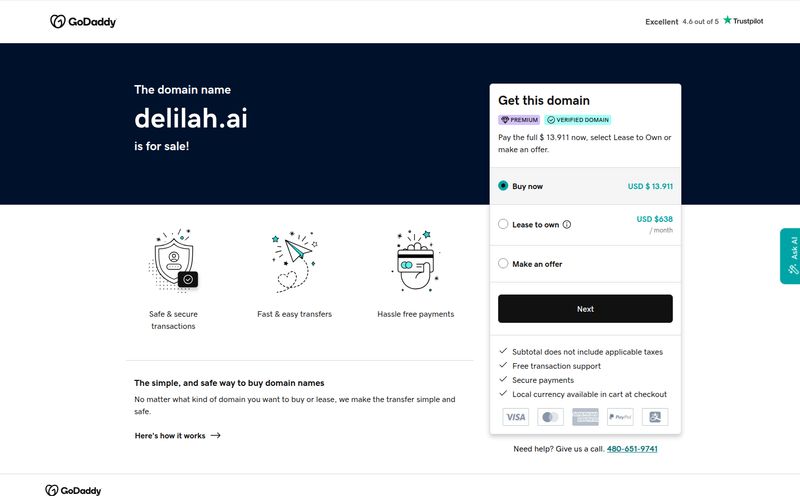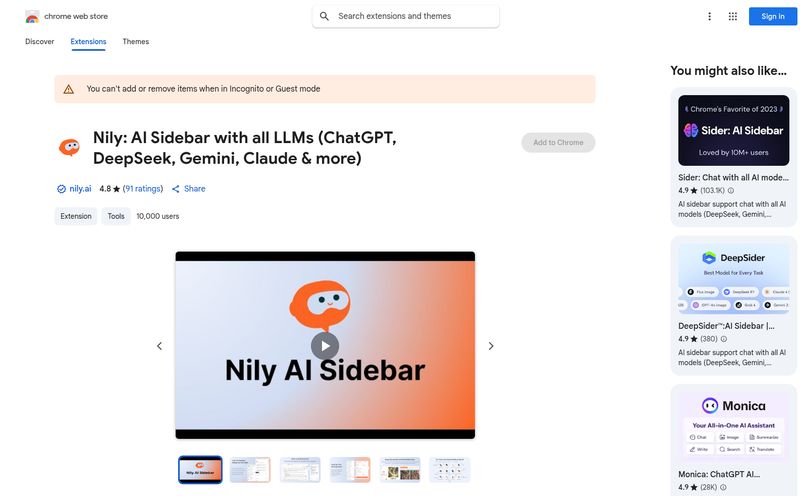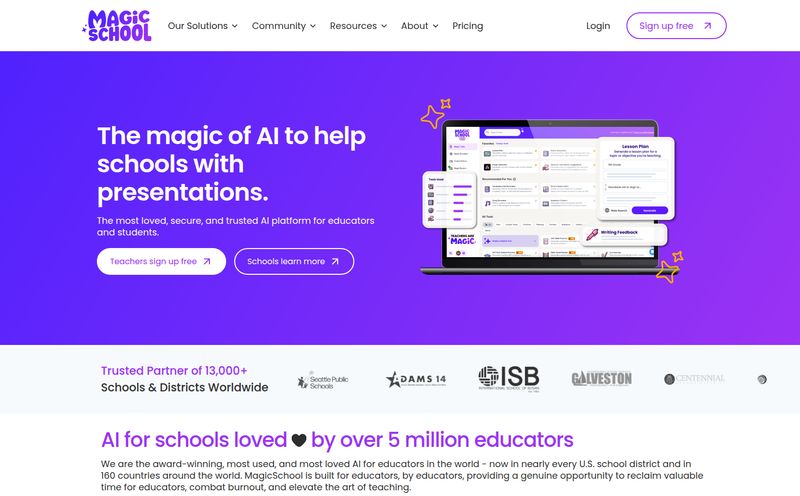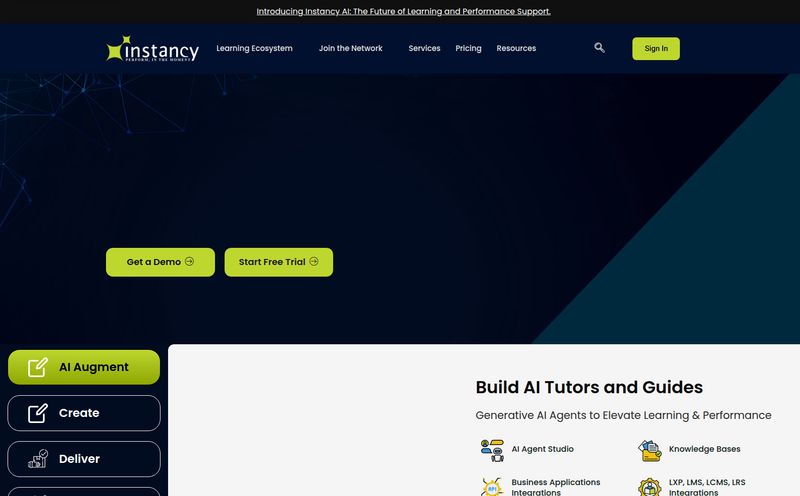If you're in the content or SEO game, you know the drill. The part of the job that nobody really talks about, the part that isn't glamorous, is creating the content brief. We've all been there, right? Staring at a blank Google Doc, 15 tabs open with competitor articles, SERP analysis tools, and keyword lists. It's a grind. A necessary one, for sure, but a grind nonetheless. I once timed myself, and a thorough brief for a competitive topic took me a solid 45 minutes. That's time I'd rather spend on strategy, link building, or, you know, having a life.
So, when I started hearing whispers about a tool called Swiftbrief that claimed to cut that process down to under two minutes, my inner skeptic raised an eyebrow. But my exhausted inner content manager? He was all ears. I decided to give it a spin, and after putting it through its paces for a few weeks, I’m ready to talk about it.
So What Is Swiftbrief, Really?
Okay, first things first. Swiftbrief isn't another AI article writer promising to spit out a 2,000-word blog post with one click. Thank goodness. We have enough of those. Instead, it's an AI-powered brief generation tool. Think of it less as the chef and more as the world's most efficient sous-chef. It chops the onions, preps the mise en place, and organizes all the ingredients (your keywords, competitor data, headings) so that your writer—the actual chef—can come in and create a masterpiece without all the tedious prep work.
It combines keyword research, competitor analysis, and AI-driven suggestions to build a structured, comprehensive brief that gives your writers exactly what they need to succeed. No more, no less.

Visit Swiftbrief
The Agony of the Manual Content Brief (And How Swiftbrief Helps)
Before a tool like this, my process was a chaotic symphony of copy-pasting. I’d pull the top 10 results for a keyword, manually check their H2s and H3s, squint at the “People Also Ask” box, try to guess keyword intent, and then attempt to mush it all into a coherent document. The result? Inconsistent briefs. Sometimes I'd be super detailed; other times, when I was rushed, they were… less so. This inconsistency confused writers and, honestly, led to weaker content.
Swiftbrief aims to fix this by automating the busywork. You plug in your main keyword, and it goes to work, analyzing the SERPs and clustering related keywords and topics. It automates the structure and gets you 90% of the way there in, yes, about two minutes. That claim actually holds up, which is wild.
Key Features I'm Actually Using
A feature list is just a list until you see how it actually works in your day-to-day. Here are the parts of Swiftbrief that have made a genuine difference in my workflow.
The Magic of AI-Powered Keyword Clustering
This is the big one for me. Instead of just giving you a long, intimidating list of keywords, Swiftbrief groups them into topical clusters. Why is this so great? Because Google doesn't just rank pages for one keyword anymore; it ranks them for topical authority. Seeing keywords grouped by intent—for example, all the “how to” questions in one bucket and all the “what is” definitions in another—is a game-changer. It helps you structure the article logically, ensuring you cover a topic from all angles. It’s like organizing a messy closet not just by item, but by season and occasion. Suddenly, everything makes sense.
Automated Outlines That Don't Completely Suck
I was most skeptical about this feature. AI outlines can be… generic. And while Swiftbrief’s outlines aren’t perfect out of the box, they are a fantastic starting point. It pulls common headings and questions from top-ranking content to build a logical flow. I still spend a minute or two tweaking it, maybe reordering a section or adding my own unique angle, but it saves me from that dreaded “blank page” syndrome. This is a perfect example of AI assisting human strategy, not replacing it.
Keeping Your Brand Voice Consistent
If you work with multiple freelance writers or are part of a larger team, you know the pain of maintaining a consistent brand voice. Swiftbrief has a nifty feature where you can define your brand’s tone (e.g., “friendly and conversational” or “professional and authoritative”) and provide examples. The tool then incorporates this guidance into the brief. This has been surprisingly effective. It acts as a constant reminder for the writer, which has cut down on my editing time significantly. My writers seem to appreciate the clarity, too. A happy writer is a retained writer.
What's the Damage? A Look at Swiftbrief's Pricing
Alright, let's talk money. No tool is worth it if it breaks the bank. Swiftbrief operates on a standard SaaS subscription model. Now, pricing can be a moving target for these companies, and I've seen a couple of different figures out there. But the most current pricing on their site seems to follow this structure, with a nice little discount if you pay for a year upfront.
| Plan | Monthly Price | Annual Price (per month) | Best For |
|---|---|---|---|
| Starter | $12 /mo | $10 /mo | Freelancers or small sites (up to 4 briefs/mo) |
| Professional | $119 /mo | $99 /mo | In-house teams & small agencies (up to 50 briefs/mo) |
| Agency | $239 /mo | $199 /mo | Larger agencies scaling content (up to 100 briefs/mo) |
Note: Always check the official pricing page for the most current details.
The Good, The Bad, and The AI
No review is complete without a little critique. Of course, no tool is perfect. The biggest win for me is the massive time saving. It’s not an exaggeration. The consistency it brings to my team's output is a close second. My writers get the same high-quality, structured brief every single time, which they seem to love.
On the flip side, you are reliant on the AI, and it's not infallible. You still need a human brain to do a final check. Don't just generate and send without looking. You are the strategist; Swiftbrief is your assistant. Also, it’s a subscription service with limits based on your plan. If you're producing hundreds of articles a month, the top tier is your only option. It’s not a one-time purchase, which is something to factor into your monthly tool budget.
Who Is Swiftbrief For? (And Who Should Probably Skip It?)
In my opinion, this tool is a near-perfect fit for a few groups:
- Content Managers & SEO Leads: If your job involves creating briefs for a team of writers, this will change your life. Seriously.
- SEO Agencies: The ability to manage multiple brands and scale content production without hiring another project manager is huge.
- High-Volume Bloggers: If you're publishing multiple articles a week, the time saved adds up very, very quickly.
Who should pass? If you're a hobby blogger who writes one or two posts a month, the manual process probably isn’t a huge pain point for you. The monthly fee might not be justified. But for anyone producing content at scale, the return on investment is pretty clear.
My Final Take: Is Swiftbrief a Keeper?
Yep. For me, it is. Swiftbrief has found a permanent spot in my SEO toolkit. It doesn't try to do everything. It does one thing—create excellent, data-driven content briefs—and it does that one thing incredibly well. It solves a real, tangible, and time-consuming problem for anyone serious about content marketing.
It’s not magic. It’s just smart automation that lets me focus on the strategy and creativity that humans are actually good at. And for me, that’s worth every penny.
Frequently Asked Questions
What exactly is Swiftbrief?
Swiftbrief is an AI-assisted tool designed to help content managers and SEOs create high-quality content briefs for writers. It automates SERP analysis, keyword clustering, and outline generation to speed up the process.
How much time does Swiftbrief actually save?
While it varies, the company's claim of reducing brief creation time from over 30 minutes to under 2 minutes is pretty accurate for the initial draft. It automates the most time-consuming data collection parts of the process.
Can I trust the AI outline completely?
I wouldn't. The AI provides a very strong, data-driven starting point, but it always benefits from a human touch. I recommend spending a few minutes reviewing and refining the outline to add your own unique perspective and ensure it aligns perfectly with your content strategy.
Does Swiftbrief offer a free trial?
Yes, according to their website, they offer a free trial so you can test out the features before committing to a paid plan. It's a great way to see if it fits your workflow.
What kind of keywords does it find?
It pulls keywords directly from what's already ranking on Google, including questions from the People Also Ask section and related searches. The key feature is that it then groups these into semantic clusters, which is more useful than a simple list.
Is Swiftbrief good for marketing agencies?
Absolutely. The Professional and Agency plans are built specifically for that. They allow you to manage multiple client “brands,” each with its own tone of voice and guidelines, making it ideal for scaling content production across different accounts.
Reference and Sources
- Swiftbrief Official Website: https://www.swiftbrief.com
- Swiftbrief Pricing Page: https://www.swiftbrief.com/pricing



